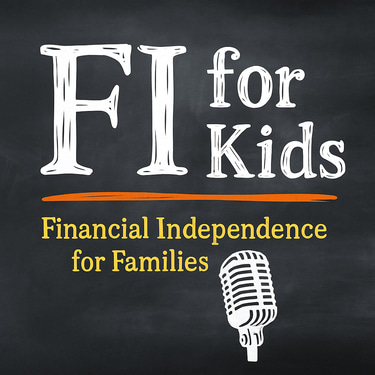A Tale of Two Life Paths
Why F.I. is Awesome!
Dominic DeLaquil
10/2/20245 min read


Financial Independence – sounds incredible, seems unachievable - unless you hit it big as an entrepreneur or you work your life away until you reach retirement age near 70.
The good news, no the GREAT news, is you don’t have to do either of those things.
As a bonus, it’s actually fairly simple and in the process you get clear on what really matters to you in life so you can choose how to spend your time, energy and money for a rewarding and joyous life that offers youmany more options than the typical grind to social security at age 70. Pretty simple from the money management standpoint, not always easy. And the knowing yourself, well that seems obvious once you get there, but not always clear when you’re in the process of figuring it out. Mistakes are required to be made, that’s how life works.
Below let’s take a look at two paths through life from early adulthood:
The Tale of Rob and Sarah
Rob is an electrical engineer currently in his forties. After high school he went to the major state university in his home state. He worked hard, graduated with honors, and got an engineering job right out of school. He married Sarah a few years after graduation and they promptly took out a mortgage and got a nicer car. They went out often with their friends on weekends and in those early years they didn’t have a lot of money left over at the end of each month. Rob relied on student loans to pay for college and in order to stretch his salary as much as possible, he set up his student loan repayments for the longest period possible so he would have a lower payment right out of school. His plan was to then pay extra on the principal once he was settled and had more income.
Fifteen years and two kids later, Rob has never gotten around to paying extra on those loans and he is still paying the lowest monthly payment possible. He has had regular annual raises and once negotiated a higher salary when he took a job with a new firm. He likes his job well enough, but no place is perfect. He finally reached the 10-year mark with the firm and now gets 4 weeks of vacation every year that he doesn’t want to give up if he changed firms again.
The steady salary increase has meant that every few years Rob and Sarah have increased their mortgage on bigger homes in nicer neighborhoods and traded in cars every few years to accommodate their growing family.
Rob started contributing to his 401K about 8 years ago and puts in around 8% of his income. He keeps thinking he should do more, but then that would make things tight. They have some extra money each month, but they don’t have more than about a month’s worth of expenses saved, and sometimes they dip into that for splurges and unexpected expenses. Still, they are happy and enjoy their life, even though he worries at times something major might happen to the house. He feels stuck in his job, but it’s not that bad. Rob and Sarah are a responsible, hard-working couple, and they figure they have plenty of time to get their finances in order before retirement in about 25 to 30 years.
The Tale of Manny and Claire
Manny is a software engineer and is also in his early forties. Like Rob, he went to a state school, albeit a smaller one where he received a couple of small academic scholarships. He earned his degree in computer sciences, and started his career. Those first few years after graduation, Manny shared an apartment with a couple of friends that was within a few miles of his work so he could save money (and time) on daily travel. He liked to hang out with friends, but rather than going out every weekend, he would often convince his buddies to hang out at someone’s apartment. They saved quite a bit of money while still having a lot of fun as young friends with plenty free time on the weekends.
Manny managed to save enough money during those years, that when he met and married Claire, he had enough for a down payment on a duplex. It wasn’t as nice as some of their friends new homes, but it was nice enough. It was still close to work, and by renting out the other unit, they were able to live almost rent free while building equity in their property at the same time. They kept their same cars they had since college, which weren’t fancy, but were very reliable. Because they were saving a lot of money by not having car payments and nearly no house payment, they were able to save about 50% of their incomes while still having a great life. They valued being able to take weekend trips, hang out with friends on the weekends, and buy organic groceries. They ate out too, but were mindful about how much money they spent on going out. They had just as much, if not more fun grilling and having friends over, which cost a lot less than going out to the trendy places every weekend. They made sure to max out their contributions to their 401ks, and they were still able to save up six months of expenses as an emergency fund.
They continued stockpiling money away, and while they put a generous amount aside each month for travel (which they loved), they also started investing their additional savings. They considered real estate, but decided to keep things simple and went with investing anything they saved into whole market mutual funds and bonds. They did have some student loans, but with all the extra money from living intentionally, they paid those off in 7 years, and then took that monthly sum and started investing that too. They worked hard for about 15 years, and then they both quit their jobs. They had reached Financial Independence, and don’t have to work again if they don’t want to.
Currently they are on an extended trip abroad with their 11 and 13 year old kids. When they return at the end of summer before the new school year, Manny is going to do some freelance IT work for some local small businesses, because he likes doing that sort of thing and also likes helping people. Claire is going to get back to writing. She always wanted to be a writer, but didn’t want to rely on it for a living. Now that she doesn’t have to work, she is free to “work” on her writing. She may not become a best seller, but she is feeding her creative self, which is the part she values.
Rob and Sarah have an enviable life to all appearances, and they are doing okay for themselves. Hopefully they continue to like their jobs while they keep working until they reach retirement age when they are nearly 70. This is the traditional path.
Manny and Claire live in a modest house, with older cars, but they aren’t suffering any sense of lack. They were able to save/invest at a very high rate while they worked and still had an enjoyable life filled with the things they valued. Their path allowed them to have the option to retire in their mid-thirties if they wanted, and now the options for how they spend their time for the next 30 years doesn’t include grinding out a 40 hour work week, but rather, living a life of endless wonder! That’s the F.I.R.E path.
Make some simple (not necessarily easy) choices as you go through life, both with your money and on what things you really value, and you can achieve financial independence and the option to retire far, far earlier than most people realize.
Which path would you prefer? And which path would you choose to guide your kids towards?
Thanks for reading.
Please check out the FI for Kids podcast. New episodes every Thursday. You can follow the show at www.fiforkids.com, Apple podcasts, Spotify, YouTube, Pandora and iHeart radio .
